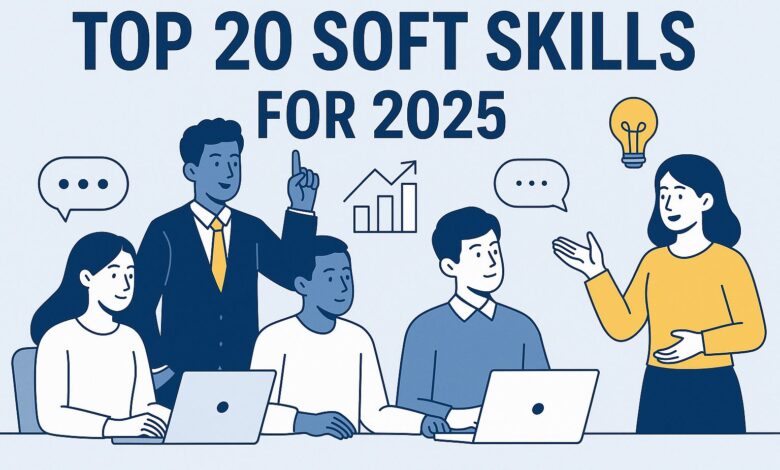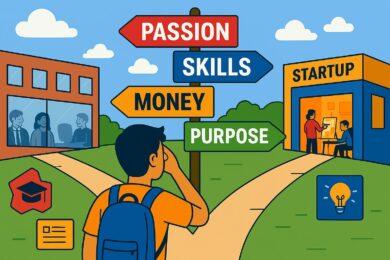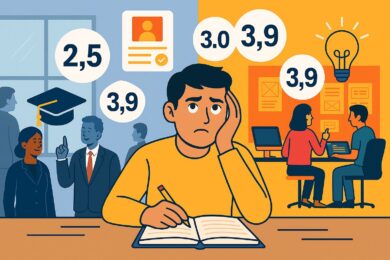Top 20 Soft Skills Employers Are Looking for in 2025

In today’s fast-changing job market, having a degree is not enough. Companies want more than just technical knowledge or academic results. They are looking for people who have strong soft skills—personal abilities that help you communicate, collaborate, lead, and grow in any workplace.
If you want to stand out in job interviews or succeed in your career in 2025 and beyond, this guide is for you. Let’s explore the 20 most in-demand soft skills, with real examples and easy ways to develop each one.
What Are Soft Skills?
Soft skills are personal traits that show how you work with others, solve problems, and adapt to new situations. They are different from hard skills, which are specific technical abilities like coding, graphic design, or accounting.
Why Soft Skills Matter:
- You can learn a tool, but soft skills like teamwork or decision-making take time and experience.
- In 2025, with remote jobs, AI, and cross-cultural teams, soft skills are more important than ever.
20 Soft Skills Employers Want in 2025
1. Communication
Being able to speak and write clearly.
Example: Explaining your project to your team in simple language.
Solution: Practice public speaking, join debate clubs, write blogs.
Tool: Try Grammarly to improve your writing.
2. Teamwork
Working well with others to achieve a common goal.
Example: Completing a group assignment with classmates without conflict.
Solution: Volunteer in group activities, university clubs, or NGOs.
3. Adaptability
Adjusting quickly to new tools, people, or situations.
Example: Learning to use Zoom or new software during the pandemic.
Solution: Take short courses in tech and communication tools.
4. Emotional Intelligence (EQ)
Understanding your own and others’ emotions.
Example: Not reacting angrily during a team disagreement.
Solution: Reflect on your behavior, read about emotional regulation.
Recommended Book: Emotional Intelligence 2.0 by Travis Bradberry.
5. Problem Solving
Finding smart solutions during difficult times.
Example: Figuring out how to submit an assignment with a weak internet connection.
Solution: Play puzzle games, join hackathons, ask “why” and “how” often.
6. Time Management
Finishing tasks on time and prioritizing wisely.
Example: Studying, working part-time, and preparing for an exam all in one week.
Solution: Use tools like Google Calendar or Notion for planning.
7. Creativity
Thinking of new ideas or new ways to solve problems.
Example: Designing a unique presentation layout or campaign idea.
Solution: Try drawing, music, or creative writing.
Free Tool: Canva.com for creative practice.
8. Leadership
Inspiring and guiding others—even without being the “boss.”
Example: Leading a study group or organizing a campus event.
Solution: Take leadership roles in student clubs, read leadership blogs.
9. Critical Thinking
Analyzing situations deeply and making logical decisions.
Example: Choosing the best job offer by comparing salary, growth, and location.
Solution: Solve case studies, discuss current issues, read opinion columns.
10. Decision-Making
Choosing the best option among many.
Example: Selecting the right university major.
Solution: Use pros and cons charts, talk to mentors, research deeply.
11. Active Listening
Paying full attention to what others say.
Example: Letting your friend speak fully before replying in a conversation.
Solution: Don’t interrupt, repeat key points, ask follow-up questions.
12. Work Ethic
Being honest, responsible, and disciplined.
Example: Submitting work on time, even if no one checks.
Solution: Set personal standards, create to-do lists, avoid shortcuts.
13. Stress Management
Staying calm and focused under pressure.
Example: Giving a presentation without panicking.
Solution: Practice meditation, exercise regularly, take breaks.
14. Networking
Building and keeping good professional relationships.
Example: Staying connected with internship colleagues.
Solution: Use LinkedIn, attend career fairs, say thank-you after interviews.
15. Negotiation Skills
Reaching a fair agreement in any deal or conflict.
Example: Discussing your salary or project deadline with confidence.
Solution: Practice mock negotiations with friends, read negotiation tips.
16. Presentation Skills
Speaking clearly and confidently in front of people.
Example: Explaining your project to a class or company.
Solution: Practice with friends, join Toastmasters, record yourself speaking.
17. Self-Motivation
Taking action without being told what to do.
Example: Learning graphic design through YouTube before applying for jobs.
Solution: Set personal goals, celebrate progress, stay curious.
18. Cultural Awareness
Respecting people from different backgrounds and beliefs.
Example: Working with an international team without misunderstanding.
Solution: Learn about cultures, watch global content, practice empathy.
19. Giving & Receiving Feedback
Helping others improve and growing from advice.
Example: Accepting criticism in an internship and improving your work.
Solution: Ask for feedback, don’t take it personally, focus on growth.
20. Digital Literacy (Bonus!)
Using modern tools like Zoom, Google Docs, ChatGPT, etc.
Example: Creating a virtual resume or running a remote meeting.
Solution: Take free digital skill courses (like Google Digital Garage or LinkedIn Learning).
How to Build These Skills (Even as a Student)
You don’t need to wait for a job to start building soft skills. Try these:
- Take free online courses – Use sites like Coursera, 10 Minute School, or Google Skillshop.
- Join campus clubs or events – Gain real-world team experience.
- Volunteer – Great for leadership, communication, and cultural awareness.
- Practice daily – Use apps like Habitica or Notion to track growth.
Sources and References
- World Economic Forum (Future of Jobs Report 2023)
- LinkedIn Workplace Learning Report 2024
- Harvard Business Review: “Why Soft Skills Matter More Than Ever”
- Forbes: “The Top Skills Employers Want in 2025”
- Google Digital Garage & LinkedIn Learning
Final Words
Soft skills are the real secret to success in 2025. You may not have a perfect GPA or technical degree—but if you can communicate, solve problems, lead, and adapt, you’ll go far.
Start small. Pick 2-3 soft skills from this list. Practice them. Reflect. Improve.
💬 Which soft skill do you want to work on first? Tell us in the comments or follow EducationAndCareer.com for more career tips!



